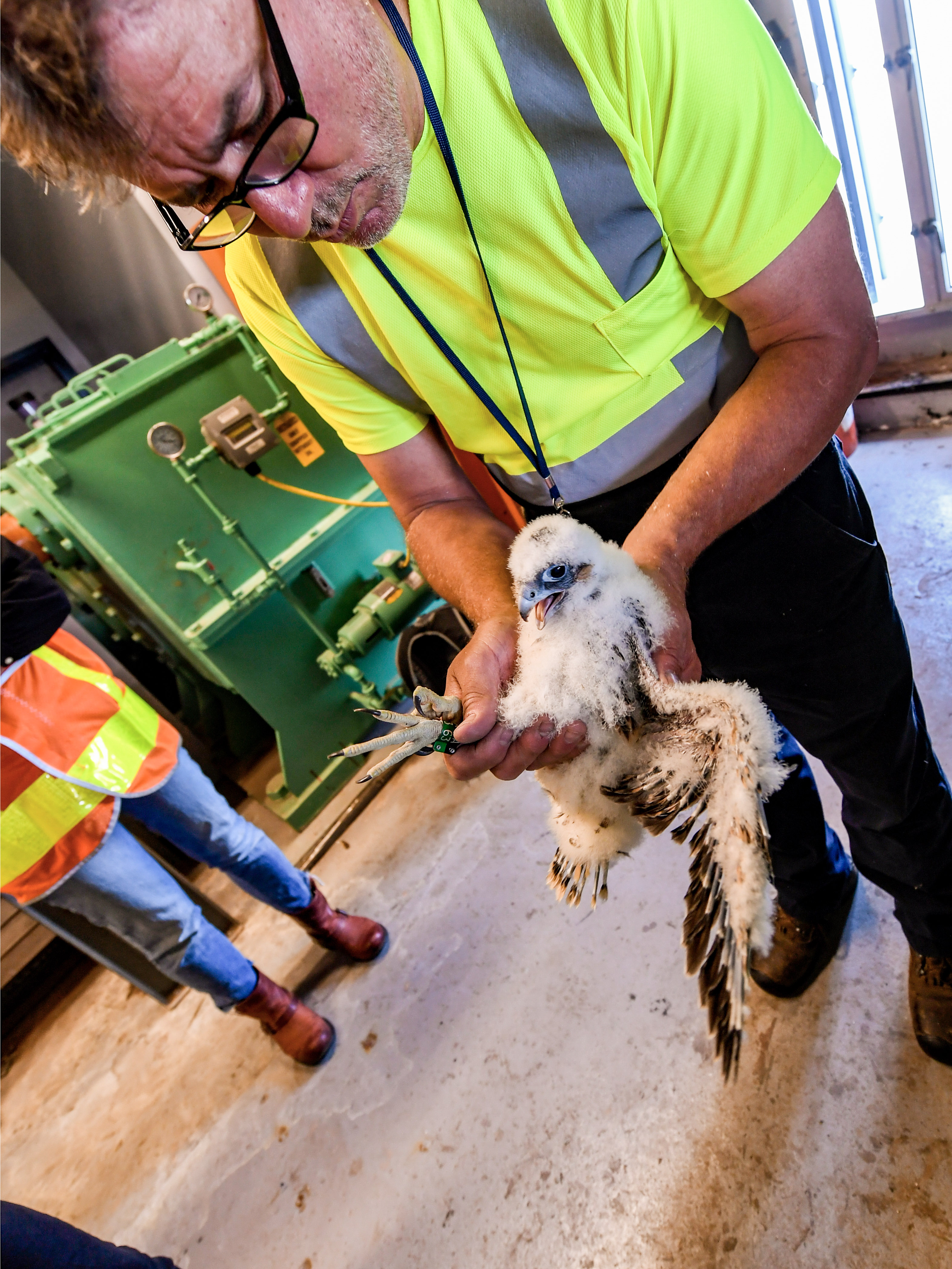Falcon Family Makes a Home atop Marine Parkway-Gil Hodges Memorial Bridge
View Photos of This Year’s Hatchling
View Video of This Year’s Hatchling
MTA Bridges and Tunnels today announced that one healthy peregrine falcon chick has been hatched and joined its falcon mom in a specially built nesting box atop the Marine Parkway-Gil Hodges Memorial Bridge. The fluffy hatchling, who enjoys 360-degree views of the city skyline from its perch atop the 215-foot Rockaway tower, was recently banded for wildlife monitoring, as happens every year.
Each year in May or June, research scientist Chris Nadareski, of the New York City Department of Environmental Protection, climbs to the top of the bridges and puts identifying bands on the falcon chicks. This helps wildlife experts keep track of the number of peregrines in the city and identify them in case they become sick or injured. The bandings took place on June 15 when the falcon chick was about three weeks old. MTA Bridges and Tunnels has been part of the state nesting program since 1983.
Peregrine falcons were nearly wiped out by the 1960s as a result of pesticides in their food supply, and remain on the New York State Department of Environmental Conservation endangered birds list. Urban falcons like to nest atop bridges, church steeples and high-rise buildings because they provide an excellent vantage point for hunting prey, including pigeons and small birds.
MTA Bridges and Tunnels provides a nesting box for the falcons at each of the bridges but otherwise leaves the birds alone, particularly during nesting season. Falcons mate for life and generally return to the same nest to hatch their young.
The banding process is performed in accordance with agency procedures and does no harm to the chick.
